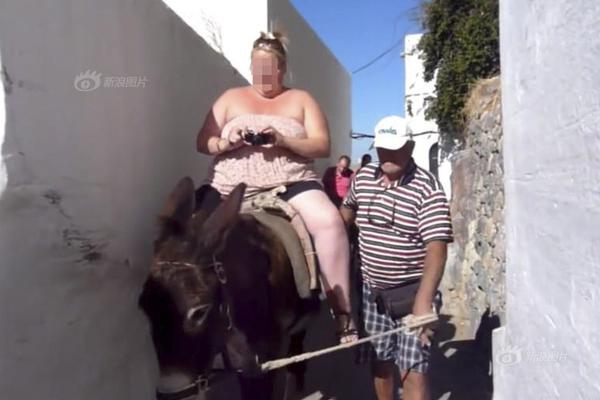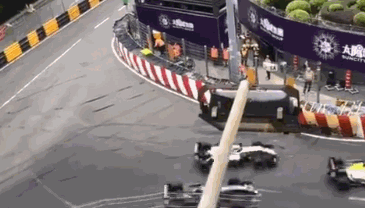Photographs is a game about self-made tragedies,Romanska, Magda. “Ontology and Eroticism: Two Bodies of Ophelia and the frozen moments around which our lives pivot.
Creator Luca Redwood is operating about as far from his past hits -- You Must Build a Boatand 10000000-- as he can get. While all three games share the common bond of simple-yet-engrossing puzzle mechanics, this new one hinges all of your play to five discrete short stories.
Those sad tales are the bedrock around which the game is built, though there's very little reading to be done here. Photographsrenders each narrative as an always-transforming diorama (created by the fabulously talented artist, Octavi Navarro), rewarding your forward progress -- specifically, solved puzzles -- with changing scenes and the smallest handful of words and voiceover.
SEE ALSO: March Mindfulness 2019: Gamers take a swing at competitive meditationThe result is a series of stories that hit you right in the feels with each new emotional beat. The puzzles, which differ mechanically as you move from one chapter to the next, connect directly to the text. So as you solve them, tackling increasingly challenging takes on the same idea as a story develops, your engagement in what's going on deepens.
It's impossible to discuss this in any detail without delving into spoilers, so let's just look at one example: The Alchemist. It's the first tale Photographsserves up, and it effectively sets the tone for everything that follows.
Photographs is a game about self-made tragedies, and the frozen moments around which our lives pivot.
The story opens on an idyllic country setting where a father and his daughter live a simple, peaceful life. The white-bearded single parent is some manner of old timey pharmacist -- as with all the stories in Photographs, The Alchemist's setting is more evocative than it is specific. You get the vibe that this father-daughter pair lives in a high fantasy world, but the details beyond that are irrelevant; in Photographs, each story's setting is about managing your expectations of what is and isn't possible.
The Alchemist opens in a happy place but things take a turn quickly when the young girl, Cleo, contracts some kind of illness that shortens her life and turns her skin an alarming shade of red. So her dad throws himself into finding a cure, but his ever more desperate search comes at a cost: it isolates him from the little girl he's trying to help.
Those efforts seem to pay off when he makes a breakthrough and administers his hurriedly researched cure. But it's a short-lived joy. It soon becomes clear that the miracle cure carries devastating side effects. In the end, little Cleo succumbs to a far worse fate than the illness ever could have caused.
As the sad tale unfolds, each inflection point that spins the plot in a new direction is marked by a puzzle. For The Alchemist, it's a sliding grid puzzle where you need to guide father and daughter both to separate goal locations.
This is quite simple early on. The father and daughter move in unison, so sliding your finger in one direction moves them both simultaneously. But as the plot unfolds and the illness overtakes Cleo, their movements fall out of sync. Swiping left might make the father move in that direction while Cleo moves in the opposite direction.
 Original image has been replaced. Credit: Mashable
Original image has been replaced. Credit: Mashable More narrative brings additional obstacles. There are plants that spell instant death for Cleo and need to be avoided. Gates that only let a character pass through in one direction. Dead ends and wrong moves can cost you an entire puzzle's worth of progress. (You can rewind your moves at any point, so it's never a full-on Game Over.)
The escalating challenge forces you to think harder and harder about the tasks laid before you when each new puzzle springs up. It's not that the puzzles themselves tell the story; more that the mechanics tie directly to the plot. You can't ever escape the grim proceedings because you're actively thinking about each puzzle in the context of rules that are directly shaped by the story.
It becomes surprisingly affecting as you get into the groove of Photographs. Even more so because each solved puzzles leads into a photo moment -- you tap and drag a camera viewfinder around the screen as you search for some hinted-at relic that moves the story forward. Finding your target and hovering over it for a few seconds takes a snapshot, which carries you to the next plot point.
Of course, it's all just a game in the end. The five stories you pieced together are propped up next to one another as Photographsasks you to make a choice: What would you change? Who would you save?
It's a reminder that while there are no do-overs in life, a moment's reflection can be all the difference between a long road to hell paved by your own misguided selfishness and a happy, fulfilled existence. We can't unmake our own self-inflicted tragedies, but Photographswants to remind us that it always starts with a choice.
Topics Gaming
(Editor: {typename type="name"/})
 Best soundbar deal: Get $50 off the Amazon Fire TV Soundbar Plus
Best soundbar deal: Get $50 off the Amazon Fire TV Soundbar Plus
 Best earbuds deal: Save $35 on Soundcore Space A40
Best earbuds deal: Save $35 on Soundcore Space A40
 What is 'Grow a Garden?' The Roblox farming simulator exploding in popularity
What is 'Grow a Garden?' The Roblox farming simulator exploding in popularity
 Best smartwatch deal: Get $70 off a Samsung Galaxy Watch7 and a free watch band
Best smartwatch deal: Get $70 off a Samsung Galaxy Watch7 and a free watch band
'Severance' Season 2, episode 7, explained: What is happening to Gemma at Lumon?
 SeveranceSeason 2, episode 7 cracks the show wide open.Titled "Chikhai Bardo," the episode finally r
...[Details]
SeveranceSeason 2, episode 7 cracks the show wide open.Titled "Chikhai Bardo," the episode finally r
...[Details]
Love Island 2025 livestream: How to watch Love Island UK for free
 TL;DR:Live stream the 12th season of Love Island UKfor free on ITVX. Access this free streaming plat
...[Details]
TL;DR:Live stream the 12th season of Love Island UKfor free on ITVX. Access this free streaming plat
...[Details]
Sound Cards: Worth Buying or Just a Niche Product?
 For a little over 50 years, video games have been a significant part of popular culture, for million
...[Details]
For a little over 50 years, video games have been a significant part of popular culture, for million
...[Details]
Climate change turns large green sea turtle population female
 Climate change has been disastrous for coral on Australia's Great Barrier Reef. It's also spelling t
...[Details]
Climate change has been disastrous for coral on Australia's Great Barrier Reef. It's also spelling t
...[Details]
GPU Pricing Update: Was AMD's Radeon RX 7000 Launch a Success?
Costa Rica vs. Dominican Republic 2025 livestream: Watch Concacaf Gold Cup for free
 TL;DR:Live stream Costa Rica vs. Dominican Republic in the 2025 Concacaf Gold Cup for free on YouTub
...[Details]
TL;DR:Live stream Costa Rica vs. Dominican Republic in the 2025 Concacaf Gold Cup for free on YouTub
...[Details]
Then and Now: How 30 Years of Progress Have Changed PCs
 The humble personal computer has been a part of our lives, directly or indirectly, for nearly five d
...[Details]
The humble personal computer has been a part of our lives, directly or indirectly, for nearly five d
...[Details]
Google's officially retiring Assistant
 Google's officially retiring its Assistant tool, instead migrating users to its AI-powered Gemini.In
...[Details]
Google's officially retiring its Assistant tool, instead migrating users to its AI-powered Gemini.In
...[Details]
How to unblock Redtube for free in Texas
 TL;DR:Unblock Redtube from Texas with a VPN. The best service for unblocking porn sites is ExpressVP
...[Details]
TL;DR:Unblock Redtube from Texas with a VPN. The best service for unblocking porn sites is ExpressVP
...[Details]
Best smartwatch deal: Get $70 off a Samsung Galaxy Watch7 and a free watch band

Computer Tips & Tricks Everyone Should Know
接受PR>=1、BR>=1,流量相当,内容相关类链接。